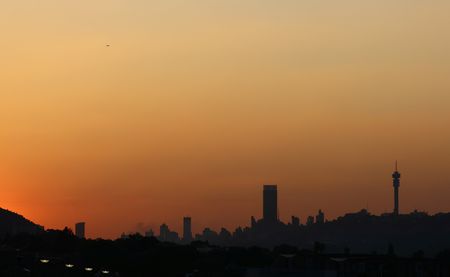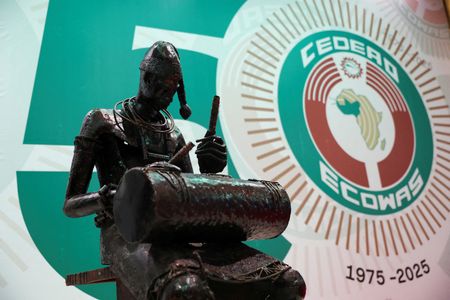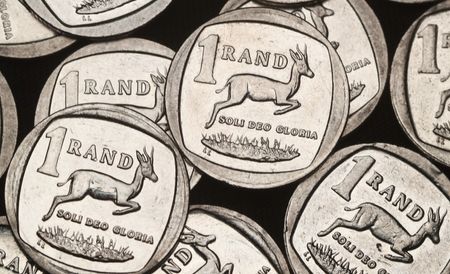By Vuyani Ndaba
JOHANNESBURG (Reuters) -Economists have cut their consensus forecast for South African economic growth this year by 0.3 percentage points in May, in the biggest single monthly downgrade since early 2023, a Reuters poll showed on Tuesday, as they factor in the impact of U.S. tariffs.
The last time growth forecasts got a similar trim was in early 2023 due to power shortages.
A median forecast of 26 economists surveyed May 22-27 suggested growth would be 1.2% this year. Last month, the forecast was reduced to 1.5% from 1.7%. For next year, it was shaved by 0.2 percentage points compared with last month’s poll to 1.6%.
“I have sliced 0.5 percentage point off my earlier forecast for GDP growth of 1.5%,” said independent economist Elize Kruger.
“The bigger negative impact on South Africa will likely emerge from the indirect effect of the trade war on the global economy at large, and specifically on South Africa’s major trading partners.”
U.S. President Donald Trump proposed a 31% tariff on South Africa in early April, which as with other countries was put on pause for 90 days.
While the direct impact of tariffs is likely limited to around 8% of total exports, some sectors will feel the impact more severely, particularly those that enjoyed duty-free access under the African Growth and Opportunity Act, added Kruger.
The South African Reserve Bank, meanwhile, was expected to cut its benchmark repo rate by 25 basis points to 7.25% on Thursday as inflation is well below the midpoint of the central bank’s target range.
But there has been no major change to the rate outlook over the past month.
The central bank is expected to hold rates at 7.25% until a 25 bps cut in November. Last month the second cut was expected early next year.
Fifteen of 25 economists expect the repo rate to be eased by a quarter of a percent this week. Nine expect rates to be held steady at 7.50% while one expects rates to be cut 50 basis points.
Inflation as measured by the change in the consumer price index is expected to average 3.5% this year, quickening to 4.2% next year and 4.4% in 2027, but still below the midpoint of the Bank’s 3%-6% target.
In March, the central bank kept its repo rate unchanged after three consecutive cuts, citing risks from Trump’s global trade war and local budget disagreements.
Still, inflation was recorded at 2.8% in April and the survey suggests it will average 2.9% this quarter. It is then expected to quicken close to the 4.5% midpoint of the target in coming quarters but still remain below that in two years.
In Cape Town last week in parliament, National Treasury made only minor adjustments to its spending plans and deficit projections in a budget presented for a third time due to disagreements within the ruling coalition that derailed two previous versions.
Michael Kafe, economist at Barclays, wrote the SARB has room to cut 25bps given no CPI target change, contrary to indications by the deputy finance minister on May 15 that an announcement on the country’s inflation target would be made very soon.
“The 2025 Budget that was presented on May 21 did not even contain the words ‘inflation target’, leaving scope for the SARB to ease policy further at the upcoming 29 May MPC meeting,” added Kafe.
Some economists still say this announcement is imminent. If it happens, that alone could lead to a downward revision of inflation expectations across all horizons, wrote Reza Ismail, head of bonds at Prescient Investment Management.
(Other stories from the May Reuters global economic poll)
(Reporting by Vuyani Ndaba; Editing by Jonathan Cable, Ross Finley and Hugh Lawson)








